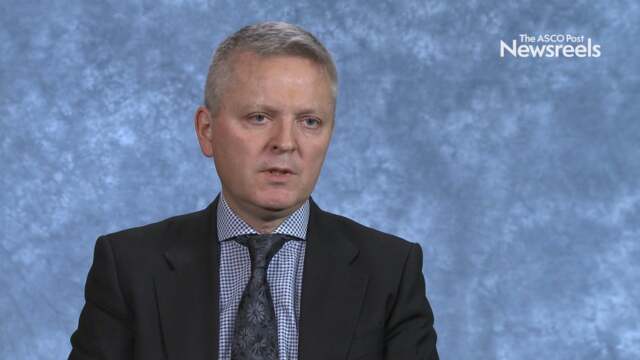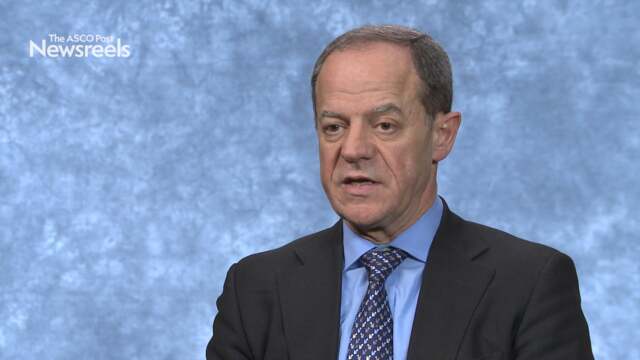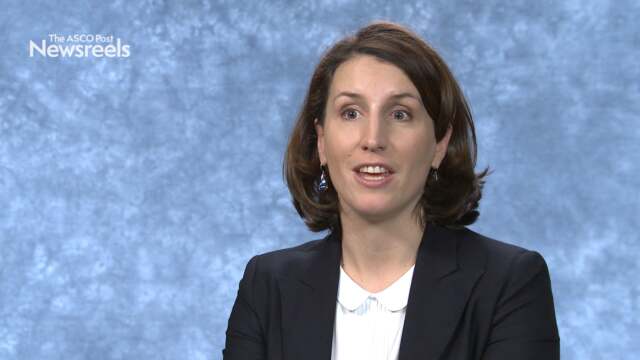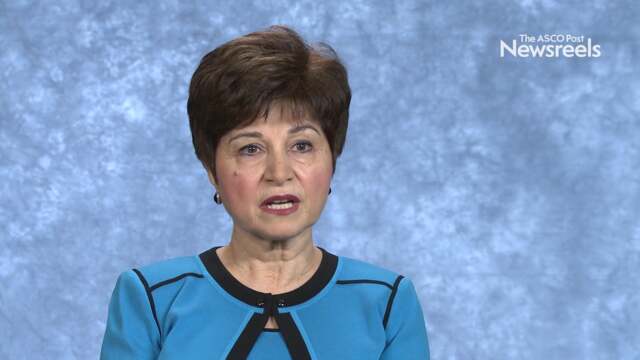Paul L. Nguyen, MD, on Prostate Cancer: Abstract Roundup
2018 Genitourinary Cancers Symposium
Paul L. Nguyen, MD, of the Dana-Farber Cancer Institute, summarizes a session he chaired on prostate cancer, which included discussion of daily vs weekly image-guided radiotherapy; a biomarker to predict biochemical failure and metastasis; a comparison of abiraterone or enzalutamide activity; and the impact of 18F-fluciclovine PET/CT on clinical management choices for men with biochemically recurrent disease (Abstracts 4, 5, 164, 165).
Patrick Schöffski, MD, MPH, of Catholic University Leuven, discusses findings on the effect of crizotinib on disease control in patients with advanced papillary renal cell carcinoma type 1 with MET mutations or amplification (Abstract 580).
Joaquim Bellmunt, MD, PhD, of the Dana-Farber Cancer Institute, discusses phase III 2-year follow-up findings on pembrolizumab vs investigator’s choice (paclitaxel, docetaxel, or vinflunine) in recurrent, advanced urothelial cancer (Abstract 410).
Laurence Albiges, MD, PhD, of the Gustave Roussy Cancer Centre, discusses study findings on the safety and efficacy of nivolumab in metastatic renal cell carcinoma (Abstract 577).
Maha Hussain, MD, of Northwestern University, discusses phase III findings on enzalutamide in men with nonmetastatic castration-resistant prostate cancer (Abstract 3).
Robert G. Bristow, MD, PhD, of Manchester Cancer Research Centre, discusses germline and somatic mutations; new ways to generate biomarkers that may describe tumor complexity; and how, in the future, this information may help triage patients with aggressive prostate tumors to intensified treatments.





